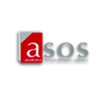Research Article
Aim & Scope
Journal of Education and Human Sciences: Theory and Practice is a peer-reviewed journal published twice a year by the Educators' Union [Eğitim-Bir-Sen]. The journal aims to publish theoretical and applied studies on educational sciences and the teaching profession. Special priority is given to studies on the working life, personal rights, and professional development of teachers and administrators. Studies related to other fields of the humanities can be considered only if they are related to educational sciences and the teaching profession.
EIBD is published twice a year (summer and autumn), both in print and online. However, studies that have passed the peer review process and have been accepted are published on the website under the title EARLY VIEW. This is to ensure that studies accepted for publication are published and made available to the scientific community without delay. Except for delays caused by authors, the peer review process of articles submitted to the journal is planned to be completed within 3-6 months (including revision and re-evaluation processes).
The Journal of Education and Humanities: Theory and Practice publishes theoretical and applied studies related to education and the teaching profession. In particular, it prioritises studies on the working lives, personal rights and professional development of teachers and administrators. Studies in other fields of the humanities will only be considered if they are related to education and the teaching profession.
The Journal of Education and Humanities: Theory and Practice publishes theoretical and applied studies related to education and the teaching profession. In particular, it prioritises studies on the working lives, personal rights, and professional development of teachers and administrators. Studies in other fields of the humanities will only be considered if they are related to education and the teaching profession.
Author Guidelines
All manuscripts submitted to the journal are pre-reviewed by the Editorial Board for compliance with the following writing principles. The preliminary review will consider; (1) compliance with the purpose and scope of the journal, (2) compliance with the journal's publication policy, (3) compliance with the journal's spelling rules, and (4) scientific originality and currency of the articles. In accordance with the plagiarism policy of our journal, incoming articles are scanned for originality using programmes such as Turnit-in or iThenticate, and if the rate in the plagiarism report does not exceed 10%, it is included in the referee evaluation. The double-blind peer review process is initiated for eligible manuscripts, and ineligible manuscripts are returned to their authors.
Manuscripts submitted to the journal should be written on A4 size with 2.5 cm top, bottom, right and left margins, 1.5 line spacing, left-justified, no end-of-line hyphenation and in 12-point Times New Roman font. Headings should be in Times New Roman bold 12 point and subheadings in Times New Roman bold italic 10 point. In headings, only the first letter of the first word should be capitalised, and the first letter of other words should be lower case. This heading system should also be used in tables. Tables, figures, pictures, graphs, etc. submitted should not exceed the page size of the journal and should not be larger than 12 x 20 in order to make them easier to use. Therefore, smaller font sizes and single spacing may be used for tables, figures, pictures, graphics and similar elements. Manuscripts should contain the following sections, each starting on a separate page.
Title page, an abstract of 100-150 words in the language of the article (Turkish or English) (including the full name(s) of the author(s), the institutions where they work and the title of the article) and 3-5 words of keywords; the Turkish or English abstract should state the purpose of the research, the methodology and the main results. In addition, a structured English abstract of 500-750 words for Turkish articles and a structured Turkish abstract of 1500-2000 words for English articles should be included at the end of the article. Depending on the content of the article, the structured abstract should include at least three headings: Introduction, Literature Review/Conceptual Framework, Methodology, Results, and Conclusion/Discussion.
Main text: Empirical studies should include an introduction, methodology [population sample, data collection tool(s), data analysis], results and discussion sections. Review-type studies should present the problem, competently analyse the relevant literature, highlight the shortcomings, gaps and contradictions in the literature, and state the steps to be taken to address it. In other studies, changes can be made according to the nature of the topic, but care should be taken that this does not take the form of sub-sections that bore the reader or make it difficult to benefit from the text. The article should be prepared in accordance with the APA Publication Manual. Manuscripts that do not follow these rules will be returned to the authors. Author notes and correspondence address, telephone and e-mail address should be included.
It is sufficient to send a copy of the manuscript in Word format to the e-mail address eibd@eibd.org.tr or to register via the DergiPark article submission system to start the editorial process.
The author(s) of research-type articles that require ethics committee approval (articles that require the use of questionnaires or scales, include interviews and/or observations; articles developed by others, such as documents, images, questionnaires, etc., and require permission for their use);
Indicate in the content of the article when and where they obtained the necessary permissions from ethics committees or commissions,
provide a copy of the ethics committee or commission approval form as an appendix to the article when submitting to our journal,
To have participated in at least two of the following stages: "study design", "data collection", "data analysis" and "manuscript writing" and to declare this in the application,
Provide raw data for research under peer review, keeping the identity of participants confidential if requested by peer reviewers,
Authors are required to provide the data if requested after publication of the article.
Authors; (1) any financial contributions, sponsorship or project support for the articles and (2) if their work has previously been presented at national or international scientific meetings such as congresses, conferences or symposia in the academic field, this must be clearly stated in the content of the article. Such studies may be accepted and included in the review process provided that they have not been published or submitted for publication elsewhere, except for a short abstract.
Ethical Principles and Publication Policy
With the ULAKBIM decision of 25 February 2020, the condition "For all disciplines (including social sciences), for studies requiring an ethics committee decision, ethics committee approval must be obtained and this approval must be specified and documented in the article" has been introduced. For this reason, it is important that authors submitting studies to our journal whose process started in 2020 or will start in the following years pay attention to this issue and upload the ETHICS COMMITTEE APPROVAL as an additional file when uploading the article. In addition, authors are required to include the information about the ethics committee approval (name of the committee, date and number) in the Methods section and on the last page of the article.
The types of research that require ethics committee approval are as follows
1 - All types of research using qualitative or quantitative approaches that involve the collection of data from participants using survey, interview, focus group study, observation, experiment, interview techniques.
2 - Use of humans and animals (including materials/data) for experimental or other scientific purposes,
3-Clinical research involving human subjects,
4- Research on animals,
5- Retrospective studies in accordance with the law on the protection of personal data,
Also
1- Indication that the "informed consent form" has been obtained in case presentations,
2- Obtaining and stating permission from the owners for the use of scales, questionnaires and photographs belonging to others,
3-Stating that the copyright of the intellectual and artistic works used has been respected.
Price Policy
There is no processing charge for the publishing an article in the journal.
Indexes
Journal Boards
Auto-generated board - Please Edit This Title
Editorial Board
Dr. Hongwei "Patrick" Yang is an associate professor in the Department of Teaching, Leadership and Research, School of Education at the University of West Florida. His scholarship is found in quantitative methodology, psychometrics, survey research as well as in content areas including online teaching and learning, family science, human and animal medical care, among others.



Dr. Turker Kurt is an professor of educational administration. He received his doctorate in educational administration from the Gazi University in Ankara, Turkey. He has served as a teacher, a university professor, and a consultant to K-12 schools, higher education institutions, and non-profit professional organizations. Dr. Kurt was a postdoctoral visiting scholar at the University of Wisconsin-Madison in 2013-2014. Dr. Kurt teaches graduate level courses including educational reform and leadership, management of higher education, and school administration. Dr. Kurt teaches undergraduate level courses including introduction to educational sciences, classroom management, and educational sociology. Recently, he has studied as a visiting research associate at the University College London, Institute of Education in 2021-2022.
Dr. Kurt’s research focuses on the higher education policy, governance, and leadership with an emphasis on equity issues. He also runs research in educational leadership, education reform, and education finance.
Dr. Kurt has served on the editorial boards of peer reviewed journals including Journal of Research on Education and Society (JRES), International Journal of Psychology and Education Studies (IJPES), and UMT Education Review (UER). He is one of the founding members of the Association for Higher Education Studies (AHES) in Turkey and served as the vice president of the association between 2016-2020. Dr. Kurt has been actively contributing to organization of annual conference of International Higher Education Studies Conference (IHEC) since 2017.



Prof. Dr. Mehmet Şükrü Bellibaş completed his undergraduate education in Educational Sciences at Istanbul University (2009) and his doctorate in Educational Administration at Michigan State University (2014). Bellibaş, who became an Associate Professor in 2017, became a Professor in the field of Educational Sciences in 2024. Prof. Bellibaş currently works for the University of Sharjah in the United Arab Emirates. Prof. Bellibaş has more than 50 articles published in journals indexed in respected national and international directories. Prof. Bellibaş's research area is educational administration.



İbrahim Hakan Karataş, after his B.A. and M.A. in Turkish language and literature, earned his Ph.D. in educational leadership. Karatas is currently working as a professor at Istanbul Medeniyet University. His research interests include school administration, non-governmental organisations, and internationalization of higher education.



 Web
Web
Hacı İbrahim Delice; 01.04.1964 Sivas'ın Yıldızeli ilçesine bağlı eski adıyla Kızıllı yeni adıyla Cumhuriyet köyü doğumlu. İlk öğrenimini köyü Kızıllı Köyü İlkokulu'nda, orta ve tahsilini de 1979 yılında Sivas'da İmam Hatip Lisesi'nde okudu.
1984 yılı Selçuk Üniversitesi Fen-Edebiyat Fakültesi Türk Dili ve Edebiyatı Bölümü mezunu. 1985 - 1989 yılları arası Konya'da Akşehir Reis Lisesi'nde, 1990 yılında da Sivas İmam-Hatip Lisesi'nde Türk Dili ve Edebiyatı Öğretmenliği yaptı.
1990'da Cumhuriyet Üniversitesi Fen-Edebiyat Fakültesi Türk Dili ve Edebiyatı Bölümü'nde araştırma görevlisi olarak göreve başladı. 1996 yılında Cumhuriyet Üniversitesi Fen-Edebiyat Fakültesi Türk Dili ve Edebiyatı Bölümü Yeni Türk Dili Anabilim Dalı'nda yardımcı doçent; 2004 yılında doçent; 2009 yılında da profesör oldu.
1992 yılında yüksek lisansını Prof. Dr. Bilal Yücel'in danışmanlığında Cumhuriyet Üniversitesi Sosyal Bilimler Enstitüsü'nde, 1996 yılında da doktorasını Prof. Dr. Ahmet Buran'ın danışmanlığında Fırat Üniversitesi Sosyal Bilimler Enstitüsü'nde tamamladı.
1991 - 1993 tarihleri arası Cumhuriyet Üniversitesi Rektörlük Türk Dili Bölümü Türk Dili Anabilim Dalı'nda, 1993 - 1995 tarihleri arası da Fırat Üniversitesi İnsani ve Sosyal Bilimler Fakültesi Türk Dili ve Edebiyatı Bölümü Yeni Türk Dili Anabilim Dalı'nda Öğretim Üyesi olarak görev yaptı.
2009 - 2010 yılları arası Cumhuriyet Üniversitesi Edebiyat Fakültesi Çağdaş Türk Lehçeleri Bölüm Başkanlığı, yine aynı fakültenin Edebiyat Bölümü Oğuz Grubu Şiveleri Anabilim Dalı Öğretim Üyeliği, yine 2011 - 2012 yılları arası Tunceli Rektör Yardımcılığı, 2012 - 2014 yılları arası da aynı üniversitenin İletişim Fakültesi Dekanlığı görevlerinde bulundu.
2014'de 2547 sayılı kanunun 40/b maddesi uyarınca Bartın Üniversitesi'ne
görevlendirilen Prof. Dr. Hacı İbrahim Delice, 18.08.2017 tarihinde Yüksek Öğretim Kurulu kararıyla yeniden Bartın Üniversitesi Edebiyat Fakültesi Dekanlığına vekaleten atanmıştır.
Orta seviyede Farsça, başlangıç seviyesinde İngilizce ve Arapça bilen Prof. Dr. Hacı İbrahim Delice, evli ve üç çocuk babasıdır.

I am a professor of chemistry education. I have been teaching courses mainly on research methods in education and teaching and learning of science and chemistry at the secondary level. My research interests include teacher training, curriculum evaluation, how students learn in science/chemistry, undergraduates’ understandings of chemical ideas in thermodynamics, context-based teaching, problem-based learning, trends in science/chemistry education, and teaching science/chemistry to visually impaired students.
I have served in IUPAC (International Union of Pure and Applied Chemistry - www.iupac.org) Committee on Chemistry Education as a titular member (2008-2015) and chair (2016-2017). Currently, I am representing Turkey as a national representative in the same committee since 2018.
I am also a member of some national and international organizations serving in science or chemistry education as well as taking active roles such as board memberships and administrative duties.



Editor in Chief

He received his associate's degree in Classroom Teaching from Ağrı Education College, his bachelor's degree in Education Management and Supervision from İnönü University Faculty of Education, his master's degree from Fırat University Institute of Social Sciences, and his doctorate from İnönü University Institute of Social Sciences. He served for fifteen years as a classroom teacher and primary education inspector at the Ministry of National Education. During this period, he completed his master's and doctoral degrees. He began his academic career in 2005 as an assistant professor in the Department of Educational Sciences at Fırat University Faculty of Education, where he was promoted to associate professor in 2012 and professor in 2019. He is the editor of the journal “Journal of Education and Human Sciences: Theory and Practice.”
Editors


Field Editor











